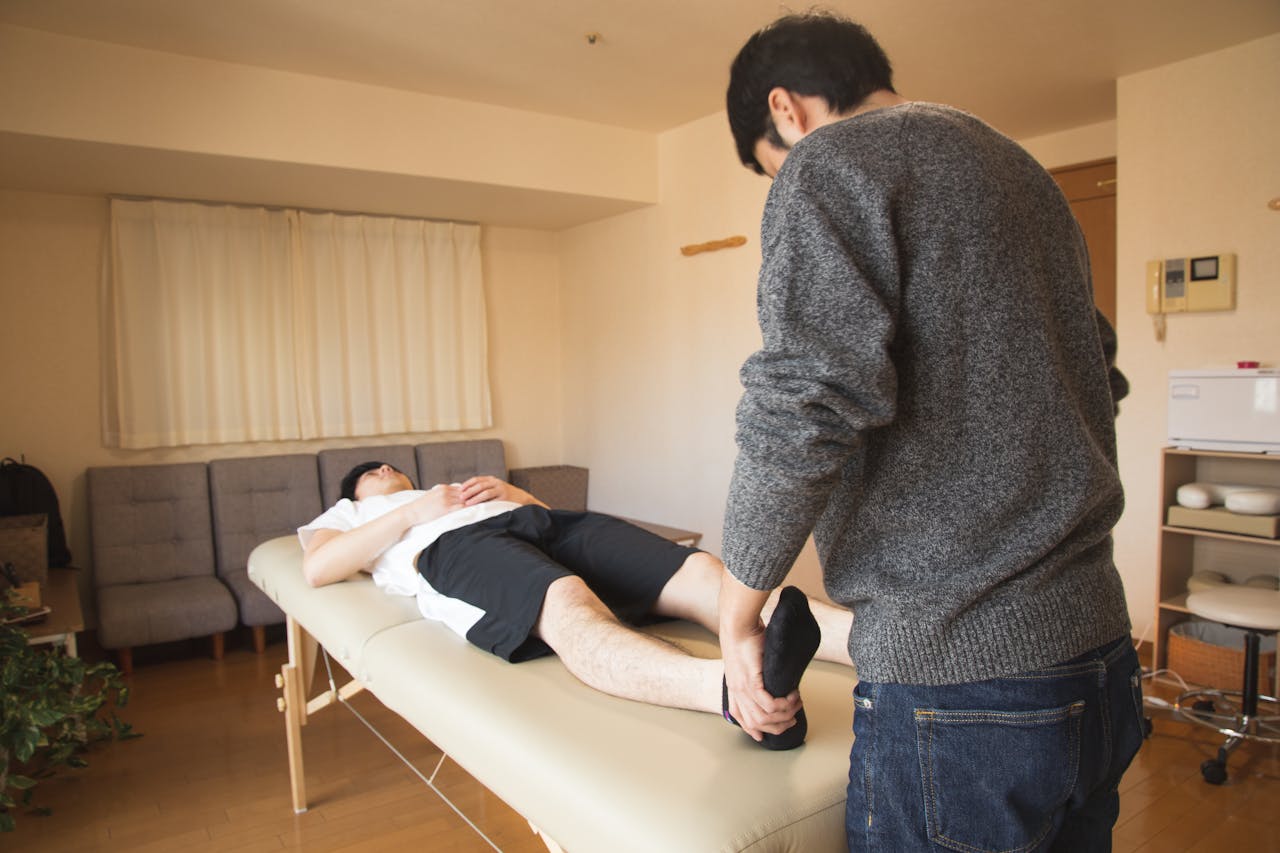“He was brusque when the moment required sensitivity, flip when the conversation was grave, and heavy-handed when the situation called for a light touch. Just a few days earlier, we were shocked to learn he’d bluntly told an elderly war hero in the hospital for his diabetes, “‘I need to cut off your leg.” (New York Times)
We’ve probably all heard stories of medical professionals like that. This type of person can be “extremely bright, an excellent learner, and an outstanding physician,” shares Amber Comer, “but absolutely lack empathy, which has implications for patient care.”
Amber is an assistant professor with the Department of Health Sciences in the School of Health and Rehabilitation Services at Indiana University-Purdue University Indianapolis (IUPUI). And she is currently conducting crucial research: how to help increase empathy among physicians. This research began after the IU School of Medicine, along with numerous others in the health care profession, recognized the need for physicians to go beyond “do no harm” to this: “be kind.” (And, yes. We know that “do no harm” isn’t the actual Hippocratic Oath but it is a commonly held summary of that philosophy.)

As part of Amber’s research, she is collecting data to determine how empathetic neurologists are when speaking to families of a patient who has experienced a traumatic stroke. She first observes the actual conversation the neurologist has with a family, then follows up. This follow up includes asking the neurologist if he or she feels as though he or she was being empathetic – and then asking the family members for their perceptions. Not surprisingly, sometimes the neurologist feels as though he or she was quite empathetic, but family members feel otherwise. There are numerous reasons for that disconnect, including that the neurologist truly was abrupt but was unaware; or the family is feeling extremely stressed and needs more help dealing with the trauma than what can be immediately provided and is upset by virtually everything that is happening; and countless other possibilities in the middle of these two explanations.
Returning to the study: once data is collected, Amber will then collaborate with Sara Konrath, an IUPUI assistant professor of philanthropic studies. The two women will develop a text-messaging app and then test it with third- and fourth-year medical students. The students will receive texts, perhaps as often as daily, that share tips on conveying empathy. These might include asking the students to touch a patient on the arm or make eye contact. The goal of the study: to see if empathetic behaviors improve through these tips and reminders.
A press release on this study was just published in February 2017, so we don’t know any results yet – but it will be interesting to monitor this research. And, although this particular research project is new, the subject itself isn’t. In July 2015, an article published on the Berkeley University of California site discusses whether or not it made sense to train doctors for empathy, and the writer makes this statement: “While we all want great medical care, we also want doctors who listen to us and convey empathy—an understanding of our feelings and concerns, reflected in a warm demeanor. This can help us to trust and feel connected to them.”
Not all patients, of course, have felt connected to their medical team. In a 2011 survey of 800 people recently hospitalized, only 53 percent of them felt that their physicians were empathetic. For more objective data, another study actually videotaped the doctor-patient interactions, and found that patient distress was “often overlooked or dismissed,” with empathetic responses observed in only 22 percent of the cases. Fortunately, as increasing amounts of research indicate the “far-reaching benefits of emotionally attuned physicians,” leaders in the field have been focusing on redefining quality medical care as including empathetic interactions between physicians and patients, as well as with their families.
Benefits of Medical Empathy

When patients feel listened to and cared about, patients:
- Comply more with doctors’ orders, which can help their health to improve
- Are most satisfied with their treatment
- Enjoy better health; in fact, one study showed that physician empathy could even positively affect the duration and severity of a common cold!
- Are 20 times more likely to consider their surgery outcomes as positive
Benefits of Showing Empathy
Studies have shown that being empathetic helps the physicians themselves, as well, as they show fewer signs of “stress, cynicism, and burnout.” Because of the benefits of empathy for patients and physicians alike, Darrell Kirch, president and CEO of the Association of American Medical Colleges (AAMC), began incorporating steps to screen for these characteristics in students wanting to enter medical school.
The MCAT, used as the medical school admission test, now “includes a new section measuring student knowledge on the behavioral, social, and psychological elements of health care—a way to gauge applicants’ understanding of how a patient’s background, psychology, and experience impacts their health.” The AAMC is also looking at additional screening methods.
According to a New York Times article cited at the beginning of this blog post, empathetic observers have “brain activity, heart rate and skin electrical conductance that mirror those of the person undergoing the emotional experience – observing a friend’s hand getting slammed in a car door, for example, causes us to flinch because an image of the accident gets mapped onto the pain and threat sensors in our own brain.”
Following up on that, the director of the Empathy and Relational Science Program in the department of psychiatry at the Massachusetts General Hospital created training modules to help physicians more effectively recognize and interpret body language and facial cues. Doctors who underwent this training showed measurable increases in empathy.
Meanwhile, the director of Thomas Jefferson University’s Longitudinal Study of Medical Education points out how empathy tends to drop by about the third year of medical school. This, to him, indicates that more education needs to be provided about cognitive empathy. This involves understanding patient experiences, concerns and perspectives, and developing an ability to communicate that understanding to the patients themselves. Cognitive empathy is different from “affective empathy,” the latter of which in layman’s terms is similar to “sympathy.”
Several studies have shown a correlation between cognitive empathy in physicians and improved patient outcomes. In one of these studies, diabetic patients experienced fewer complications needing hospitalization when their physicians ranked highly on cognitive empathy.
Virtual Reality Applications

Struggling to be empathetic does not make someone a bad person. Many times, understanding another person’s challenges may simply be beyond someone else’s life experiences. For example, how could a 24-year-old medical student (currently the average age of medical students) truly comprehend what it would be like to already be 74? Because approximately 22 percent of the United States population is expected to be 64 and older by 2040, it’s important to provide guidance to younger medical professionals who will be working in geriatric care to do just that.
Embodied Labs has created a “radical new project” titled We Are Alfred that uses virtual reality (VR) to help younger physicians and medical students understand the challenges faced by their older patients. This project began when the Embodied Labs founder was trying to understand what her mother was going through with early-onset Alzheimer’s disease. We Are Alfred goes beyond video presentations, immersing viewers into another person’s life via VR.
Using a VR headset, plus headphones and hand-held devices, a physician or medical student can spend seven minutes living out six scenes from the perspective of 74-year-old Alfred. This includes a doctor’s visit, plus a birthday party, a minor spill and more. Each is experienced as Alfred would, which includes his visual and auditory impairments. The screen contains a large dark blob to represent Alfred’s macular degeneration and conversations aren’t heard perfectly to mimic hearing loss.
In one of the scenes in the VR experience, a doctor is giving Alfred a cognitive test and he doesn’t perform well. But, there isn’t really anything wrong with Alfred’s cognition; he simply can’t hear what the doctor is asking him to do. The doctor doesn’t realize that and frustrations mount. If this technology intrigues you, the article also contains a four-minute video that shares the reactions of people who have experienced this particular VR.
Gentle, Empathetic Rock Hill Chiropractic Care

The concept of empathy has been at the core of chiropractic care at the Kimble Chiropractic Center for nearly 60 years. Both Dr. Donald G. Kimble and Dr. Mark G. Kimble create an environment where patients feel comfortable, listened to and cared about. We create connections with our patients, which is why many of them choose to continue with wellness care long after their initial issues are addressed.
Contact us today for your Rock Hill chiropractic care or call us at 1-803-327-6155 or email us at [email protected] to schedule your consultation.








